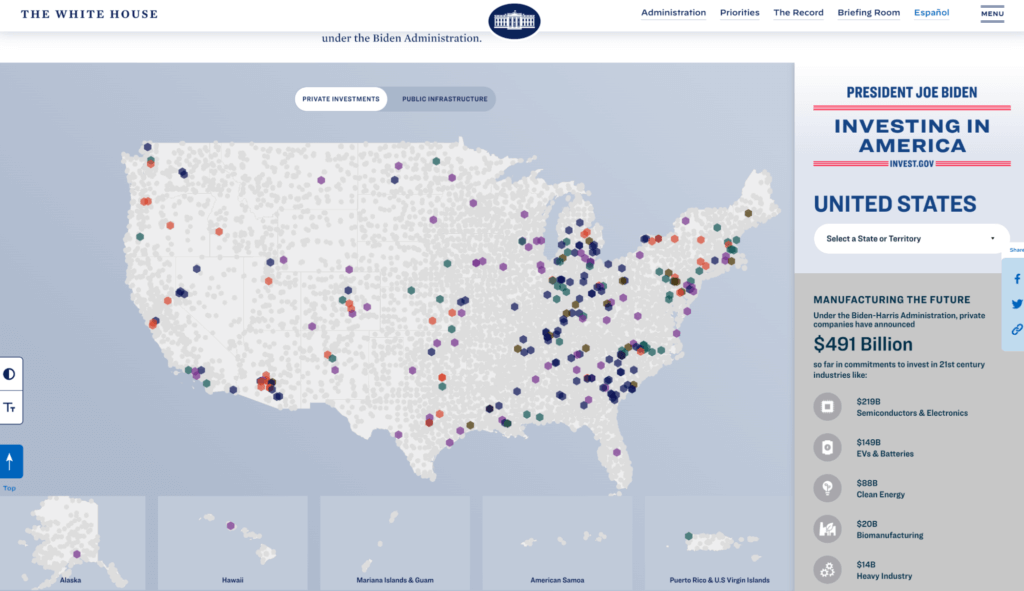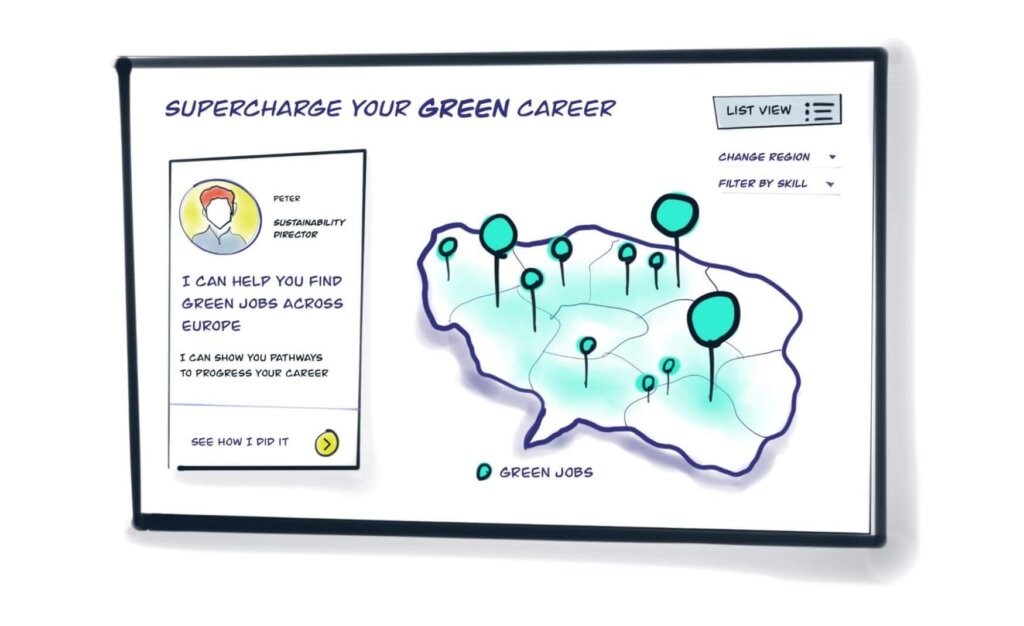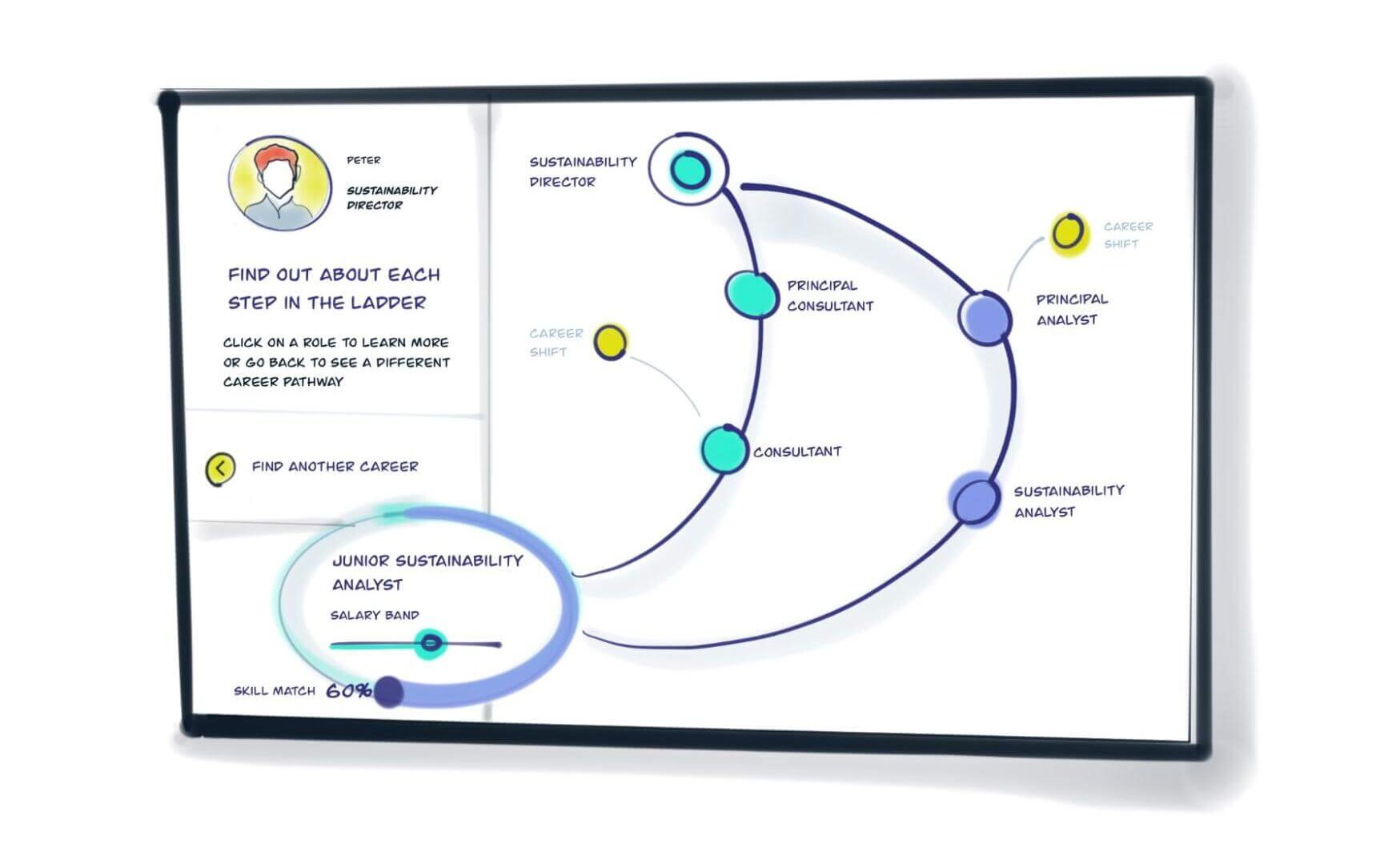 Insight
Data can power a green careers revolution
Insight
Data can power a green careers revolution
Any organisation without a sustainability strategy in 2023 probably won’t be around in another 50 years’ time. Maybe, neither will we.
There is cause for optimism, however. In the US, the Biden administration’s economic plans have essentially incentivised investment that supports clean energy and green industries. And new data shows that the clean energy workforce added nearly 300,000 jobs in 2022, with job growth in every state in America.
So this is a crossover post of sorts. Our EdTech pod exists to power the workforce of tomorrow. Our Sustainability pod exists to help make that tomorrow viable in the first place. Put the two together, and you’ve got the potential for a green careers revolution, backed (as always) by the data.
EdTech + Sustainability = A green workforce revolution
So far, the Investing in America program amounts to a staggering $503 billion in private investment commitments in 21st century industries. That includes $88 billion for clean energy, $149 billion for EVs and battery technologies, and over $75 billion to provide affordable internet access to everyone in the US. On a global level, it’s a shining example of the future of work (EdTech) and the future of the planet (Sustainability) going hand-in-hand.
To bring this data to life, the White House has released their own interactive data visualisation to showcase private and public infrastructure projects across all 50 states.

The Investing in America total passed the $500 billion mark in July 2023. Source: invest.gov
The world can shift if we have the tools and means to do it. The goals and commitments being set by governments are a step in the right direction.
As another example, this time from the corporate world, here are some of Mars Corporation’s key sustainability goals:
- Achieve net zero emissions by 2050
- Eliminate deforestation from its supply chain
- Transition to 100% renewable energy
- Engage with 20,000+ suppliers to step up and set their own commitments
Goals and commitments are one thing. The challenge around execution then becomes: Do we have the talent and the skills to make these goals a reality?
As part of our FutureFridays innovation platform, a multidisciplinary team at infogr8 came up with a concept for a Career Exploration Portal specifically for green careers.
The tool would bridge all our existing know-how in career navigation sites that make users tick, but targeted towards a new wave of cutting-edge jobs that close the green skills gap while supporting the push for climate action.
Visual data harnessed in this way can help students, job-seekers, workers and employers make the jump into a new career in sustainability.

Behind the premise of a green workforce revolution lies a wider recognition that people from all walks of life are changing careers – and that the very notion of a career is itself changing. Skills are increasingly transferable across roles, industries and sectors already, so is it much of a leap to transfer into a green career? Probably not. And data can provide the compass by which career changers can navigate this emerging job market more effectively.

In the spirit of cross-pod collaboration, I reached out to our GM Sustainability Stewart for his top three tips on how to get into a green role:
- Identify what a green role even is
It’s not exactly obvious what a green job is yet. Google it yourself and you’ll see what I mean. Some might be pretty obvious. A wind turbine engineer is obviously green, right? But can an accountant be green? Can a bricklayer be green? Of course! Are you accounting for an organisation with a clear pathway to net zero, or serving up solutions to help other companies do so? Or are you accounting for an organisation that’s being vague in its commitments, and even vaguer in tracking its commitments?
- Run a skills audit
Identify what you’re good at, and identify which of the skills you possess are most transferable into a green role. It might be that you look for a similar role, just for a more forward-thinking company. Or you might actually want to switch to a different type of role altogether. In that case, a skills audit will serve you well, identifying your strengths and any knowledge/skills gaps that you can proactively address. Heck, you might even…
- Sign up for a course, certificate or credential
There are plenty of interesting courses out there that could help propel your green career or switch into something more socially impactful. I’m not just talking about Carbon Management masters degrees, either. Even more traditional trades like plumber, electrician or the aforementioned bricklayer have greener futures to work towards. Perhaps you could be installing air-source heat pumps, or building net zero homes?
